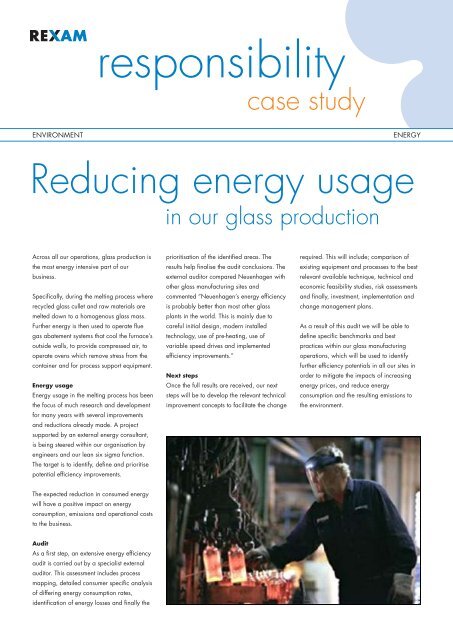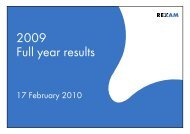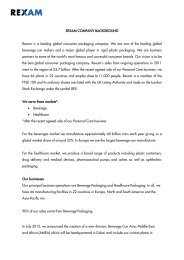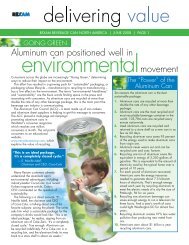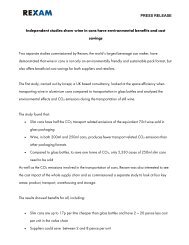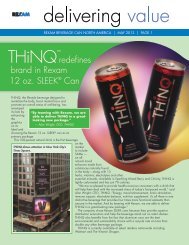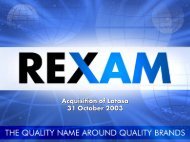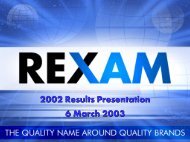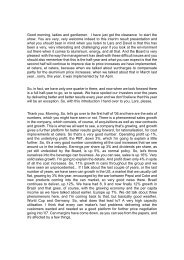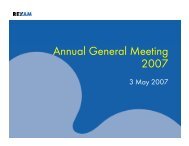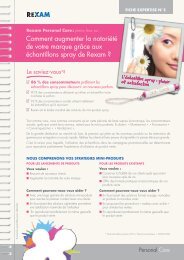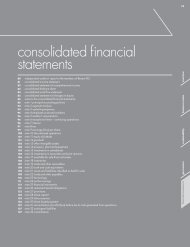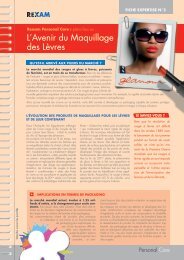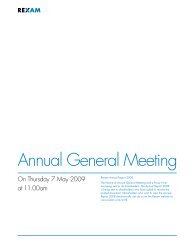All case studies
All case studies
All case studies
You also want an ePaper? Increase the reach of your titles
YUMPU automatically turns print PDFs into web optimized ePapers that Google loves.
ENVIRONMENT<br />
Reducing energy usage<br />
in our glass production<br />
Across all our operations, glass production is<br />
the most energy intensive part of our<br />
business.<br />
Specifically, during the melting process where<br />
recycled glass cullet and raw materials are<br />
melted down to a homogenous glass mass.<br />
Further energy is then used to operate flue<br />
gas abatement systems that cool the furnace’s<br />
outside walls, to provide compressed air, to<br />
operate ovens which remove stress from the<br />
container and for process support equipment.<br />
Energy usage<br />
Energy usage in the melting process has been<br />
the focus of much research and development<br />
for many years with several improvements<br />
and reductions already made. A project<br />
supported by an external energy consultant,<br />
is being steered within our organisation by<br />
engineers and our lean six sigma function.<br />
The target is to identify, define and prioritise<br />
potential efficiency improvements.<br />
The expected reduction in consumed energy<br />
will have a positive impact on energy<br />
consumption, emissions and operational costs<br />
to the business.<br />
Audit<br />
As a first step, an extensive energy efficiency<br />
audit is carried out by a specialist external<br />
auditor. This assessment includes process<br />
mapping, detailed consumer specific analysis<br />
of differing energy consumption rates,<br />
identification of energy losses and finally the<br />
responsibility<br />
<strong>case</strong> study<br />
prioritisation of the identified areas. The<br />
results help finalise the audit conclusions. The<br />
external auditor compared Neuenhagen with<br />
other glass manufacturing sites and<br />
commented “Neuenhagen’s energy efficiency<br />
is probably better than most other glass<br />
plants in the world. This is mainly due to<br />
careful initial design, modern installed<br />
technology, use of pre-heating, use of<br />
variable speed drives and implemented<br />
efficiency improvements.”<br />
Next steps<br />
Once the full results are received, our next<br />
steps will be to develop the relevant technical<br />
improvement concepts to facilitate the change<br />
ENERGY<br />
required. This will include; comparison of<br />
existing equipment and processes to the best<br />
relevant available technique, technical and<br />
economic feasibility <strong>studies</strong>, risk assessments<br />
and finally, investment, implementation and<br />
change management plans.<br />
As a result of this audit we will be able to<br />
define specific benchmarks and best<br />
practices within our glass manufacturing<br />
operations, which will be used to identify<br />
further efficiency potentials in all our sites in<br />
order to mitigate the impacts of increasing<br />
energy prices, and reduce energy<br />
consumption and the resulting emissions to<br />
the environment.


